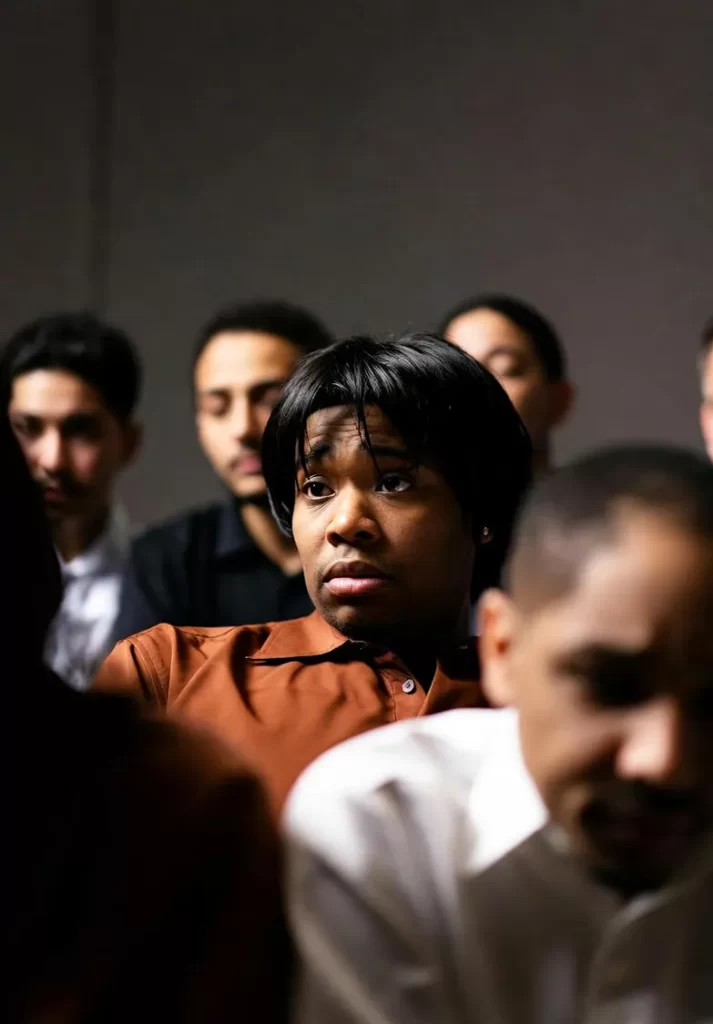- Home
- Sexual Abuse
- Rape
- Molested
Molested
- February 15, 2026
-
Sarah Miller
- Fact Checked By Our Attorneys
Being molested means experiencing unwanted sexual contact, often involving inappropriate touching of private areas without consent. This form of sexual abuse, including child molestation, can leave lasting emotional and physical scars. Survivors may experience confusion, fear, or shame, and these experiences are never their fault. The law recognizes child molestation as a serious crime, and support is available.
If you or your child were molested, Legal Claim Assistant can connect you with experienced attorneys for a free, confidential case review to explore justice and potential compensation.
No Win, No Fee. Let the Best Sex Abuse Attorneys Fight for your Compensation!
Key Takeaways:
Molestation is legally recognized as sexual abuse, even without penetration, and can involve unwanted touching, fondling, groping, or forced kissing.
Survivors, especially children, may experience long-lasting emotional and psychological effects, including PTSD, anxiety, depression, trust issues, and behavioral changes.
Abuse often occurs in trusted environments, such as schools, churches, camps, youth programs, or detention centers, which can make the experience more traumatic.
Free, confidential case reviews can help survivors understand their legal options and connect with experienced attorneys to pursue justice safely and securely.
Find out your eligibility in 2 minutes
If you or your child has been affected by groping, you are not alone. Many families face the same fear, confusion, and questions. Here you can learn how to hold offenders accountable and explore your legal options to pursue justice and the compensation you deserve.
Begin your free and confidential case review today.

What Does Molested Mean? Understanding Child Molestation
Being molested generally refers to experiencing unwanted sexual contact or child sexual abuse, often involving inappropriate touching of private areas. While molestation does not always include penetration, it is recognized as a serious form of sexual violence. The term molested (verb: “to molest”) is sometimes considered old-fashioned, but it remains legally significant when describing crimes against children or vulnerable individuals.
Sexual child molestation, for example, involves molesting children an illegal act where a molester exploits, coerces, or manipulates a child for sexual purposes. Adults, too, can be victims of child molestation, whether in institutional settings, homes, or other trusted environments. Molestation can involve sexual contact, exploitation, or even exposure to pornography in ways that harm the victim physically, emotionally, and psychologically.
Examples of molestation include unwanted touching in parks, schools, or private settings, inappropriate calls or messages, and other acts of sexual exploitation or harassment. Cases of sexual molestation may result in criminal charges, including jail time for the perpetrator, especially when there is clear evidence of abuse or exploitation.
It is important for parents, caregivers, and adults to recognize signs of molestation and report abuse promptly to protect children and vulnerable individuals. Remember, the person committing the child molestation (molester) is always responsible the victim is never at fault.
For more on how child molestation differs from other crimes, see Sexual Assault vs Rape
“Being molested can leave invisible scars — healing begins with being heard, believed, and supported.”
Signs That Someone May Have Been Molested
Recognizing the signs of molestation is critical, especially for children who may not have the words or confidence to report abuse themselves. Child molestation can leave emotional, behavioral, and physical indicators that attentive parents, caregivers, and adults should notice. While every child reacts differently, some common emotional and behavioral changes include:
- Sudden fear or avoidance of specific people or places, including parks or school settings.
- Social withdrawal, reluctance to participate in activities, or seeming unusually anxious around peers or adults.
- Unexplained aggression, irritability, or bullying behaviors, which can be a reaction to trauma.
- Regressive behaviors such as bedwetting, thumb-sucking, or excessive clinginess.
Physical warning signs may include:
- Unexplained injuries or bruises in private areas.
- Frequent complaints of pain during urination or unusual hearing complaints regarding sexual contact.
- Signs of discomfort when touched, or attempts to avoid physical sexual contact with certain individuals.
Other behaviors may point to the child being targeted by a molester, including secretive behavior, sudden anxiety about animals, parks, or other public spaces, or exposure to inappropriate material, like pornography, as part of child sexual abuse.
It’s important to remember that the person committing the molestation is always responsible. Observing these signs does not prove abuse, but they are red flags that should prompt adults to act, seek professional guidance, and consider reporting to authorities.
For more detailed information about child sexual abuse of children, see Child Rape
No Win, No Fee. Let the Best Sex Abuse Attorneys Fight for your Compensation!
Examples of Molestation and Related Words
Molestation can take many forms, ranging from inappropriate touching to more invasive acts. Common examples include:
- Fondling or groping private areas.
- Forced kissing or other unwanted sexual contact.
- Exploitation during organized activities such as camps, schools, or church programs.
- Situations where a molester uses authority, trust, or isolation to capture opportunities for abuse.
While not all sexual molestation involves penetration, these acts are still illegal and have serious emotional and legal consequences. In some cases, sexual molestation may overlap with sexual battery, depending on the degree of contact and intent.
For more on legal distinctions, see Sexual Battery vs Rape.

Emotional and Psychological Impact of Being Molested
Experiencing molestation can leave profound emotional and psychological effects on survivors, especially children.
Short-term effects often include:
- Shock, confusion, or disbelief.
- Guilt or self-blame, even though the molester is entirely responsible.
- Anxiety or sudden fear around certain people or places.
Long-term trauma may manifest as:
- PTSD, including nightmares, flashbacks, or hypervigilance.
- Depression or anxiety that affects daily life, schooling, and relationships.
- Difficulty trusting others or forming healthy attachments.
- Persistent fear or avoidance of settings where abuse may have occurred, such as parks or institutional environments.
It’s important to normalize survivor experiences: being molested is never the victim’s fault. Emotional validation, professional counseling, and supportive environments are key for recovery.
Molestation in Institutional Settings
Molestation often occurs in places where children and vulnerable individuals are supposed to feel safe, such as churches, schools, youth programs, camps, and detention centers. Unfortunately, abusers may exploit their position of trust within these institutions to molest children repeatedly, sometimes over months or even years. Understanding the dynamics of institutional abuse is critical for recognizing red flags and seeking justice.
FREE!
Find out if you're eligible and may be eligible for compensation.
Get your Free Case Review and Maximize You Payout With the Help From Legal Claim Assistant.
Common Contexts of Institutional Molestation
- Churches and religious organizations: Clergy or volunteers may use spiritual authority to isolate children and gain access for abuse. Cases have included inappropriate touching, forced sexual acts, or grooming behaviors disguised as mentorship.
- Schools and educational programs: Teachers, coaches, or staff may exploit their role to annoy, capture, or manipulate students into unwanted sexual contact. Child sexual abuse in schools can involve fondling, groping, or other forms of sexual molestation.
- Youth programs and sports teams: Trusted adult leaders or older participants may sexually exploit children during practices, games, or travel. Abusers often groom children gradually, using rewards or secrecy to maintain control.
- Detention centers and foster care: Vulnerable youth in detention or foster care may be isolated and left unprotected, making them targets for abusers. Molesters in these settings sometimes act with impunity because oversight is limited or reports are ignored.
Institutional Liability
Institutions can be legally responsible if they enabled, ignored, or failed to prevent molestation. Liability may arise in cases where:
- Staff members knew or should have known about abuse and did nothing.
- Policies were inadequate to protect children or enforce reporting.
- Background checks and supervision were insufficient, allowing a molester to operate freely.
Legal action against institutions often involves civil lawsuits seeking compensation for physical and emotional harm. These cases recognize that abuse in trusted environments can have long-lasting trauma, disrupting survivors’ lives and causing ongoing psychological challenges.
Signs That Institutional Abuse May Have Occurred
- Multiple children report inappropriate behavior by the same adult.
- Patterns of isolation, secrecy, or unexplained absences during activities.
- Attempts by staff or leadership to kill, silence, or discredit complaints.
- Instances where complaints were ignored, dismissed, or inadequately investigated.
Why Reporting Matters
Even if abuse occurred years ago, reporting is essential for justice. Survivors should document experiences, seek emotional support, and consult with a child sexual abuse lawyer to explore legal avenues. Acting against institutions can prevent further exploitation and hold those in power accountable.
Internal link suggestion: For additional context on underage sexual abuse laws, see Statutory Rape.
“Survivors of molestation deserve compassion, justice, and a safe space to reclaim their voice and power.”
Legal Protections for Survivors of Molestation
Survivors of molestation have important legal protections designed to hold abusers accountable and provide compensation for the harm caused. Understanding these protections can help survivors and their families take the right steps toward justice.
FREE!
Find out if you're eligible and may be eligible for compensation.
Get your Free Case Review and Maximize You Payout With the Help From Legal Claim Assistant.
Criminal Charges
Molestation is considered a serious crime, and perpetrators can face criminal charges. Depending on the nature of the abuse, charges may include:
- Sexual assault or battery
- Child molestation
- Exploitation or possession of inappropriate material, such as pornography involving children
Convictions can result in jail time, fines, and registration as a sex offender, ensuring the molester is legally held responsible. Criminal cases are typically pursued by the state and focus on proving the abuse beyond a reasonable doubt. Even if the abuse occurred years ago, true accountability can sometimes still be achieved, depending on the state’s statute of limitations (SOL).
Civil Lawsuits
In addition to criminal charges, survivors can pursue civil lawsuits against the abuser and, in some cases, the institution that enabled or ignored the abuse. Civil claims allow survivors to seek compensation for physical, emotional, and psychological harm, therapy costs, lost wages, and other damages. Civil cases use a lower burden of proof than criminal cases, meaning survivors can pursue justice even if a criminal case isn’t possible.
Eligibility Criteria
Not every survivor qualifies for legal action, but many do. Key eligibility requirements include:
- Child victim: The abuse occurred while the survivor was a minor.
- Skin-on-skin contact: Physical sexual contact occurred, even if penetration did not.
- Known abuser: The perpetrator’s identity is known.
- SOL still open: The state’s statute of limitations allows the case to be filed.
- Institutional setting: Abuse occurred in an organization, school, church, camp, or other institution that may be legally liable.
Meeting these criteria does not guarantee a specific outcome, but it establishes a strong foundation for pursuing legal action. Survivors should consult with an experienced child sexual abuse lawyer to determine the best approach for their case.
Steps to Take if You or a Loved One Were Molested
Taking action after experiencing sexual molestation can be overwhelming, but there are clear steps survivors and their families can follow to protect themselves, preserve evidence, and seek justice. Acting quickly helps ensure both safety and legal accountability for the molester or responsible institution.
1. Seek Medical and Emotional Support
If a survivor has experienced physical sexual contact or abuse, it is critical to seek medical attention immediately. A healthcare professional can:
- Treat any physical injuries or health concerns.
- Conduct forensic examinations to document evidence for potential legal proceedings.
- Provide referrals for mental health support, including trauma-informed therapy and counseling.
Emotional support is equally important. Survivors and families should consider reaching out to licensed counselors, support groups, or hotlines specializing in adult or child sexual abuse. Early intervention can reduce long-term psychological impacts like anxiety, depression, or PTSD.
2. Document What Happened
Whenever possible, document any details about the sexual molestation. Notes should include:
- Dates, times, and locations of incidents.
- The identity of the abuser (man or adult involved).
- Description of events, including what was done and how the survivor responded.
- Witnesses or other individuals who may have observed concerning behavior.
Accurate documentation strengthens both criminal and civil cases and ensures that related words or terms used in reporting are clear and consistent.
3. Report to Law Enforcement or Child Protective Services
Reporting abuse is a crucial step in protecting the survivor and others. Depending on the situation, reports can be made to:
- Local police or sheriff’s department
- Child Protective Services (CPS)
- Institutional authorities if the abuse occurred at a school, camp, or religious organization
Even if the abuse happened in the past, reporting may lead to investigation, criminal charges, or action against the institution that allowed the abuse to occur. Survivors should remember that the responsibility lies with the man or molester committing the abuse, not the victim.
4. Consult with a Sexual Abuse Lawyer
A knowledgeable sexual abuse attorney can guide survivors through legal options, including:
- Filing civil lawsuits for compensation
- Navigating criminal proceedings and statute of limitations considerations
- Protecting the survivor’s privacy and ensuring confidentiality
Legal guidance ensures survivors make informed decisions while pursuing justice and accountability for the molester or negligent institutions.
Free, Confidential Case Review for Survivors
Being molested is a deeply traumatic experience, and taking the first step toward justice can feel overwhelming. Legal Claim Assistant offers a free, confidential case review to help survivors understand their rights and explore options for holding a molester or negligent institution accountable.
Why Confidentiality Matters
Survivors’ privacy and emotional safety are our top priorities. During a case review:
- No personal information is shared without consent.
- There are no upfront costs or obligations.
- Survivors can ask questions and receive guidance at their own pace.
This ensures that individuals seeking help feel safe, supported, and empowered to take the next step toward justice.
How a Case Review Works
- Initial Contact: Survivors or caregivers provide basic information about the incident, the man or abuser involved, and the context.
- Assessment: Experienced staff review the information and determine eligibility for legal action, including civil lawsuits or criminal reporting.
- Attorney Match: Survivors are connected with trusted attorneys who specialize in child sexual molestation, child sexual abuse, and institutional cases.
- Next Steps: Survivors receive guidance on reporting, filing claims, and seeking compensation for emotional and physical harm.
Being molested is a traumatic violation, but you are not alone. Legal Claim Assistant connects survivors with attorneys who fight for justice and maximum compensation. Request your free, confidential case review today.
You Deserve Justice. Let Us Help.
Speak with a trusted sexual abuse attorney who will stand by your side, protect your privacy, and fight for the compensation you deserve.
No Win, No Fee. Let the Best Sex Abuse Attorneys Fight for your Compensation!
Under 1 Minute
100% Free
Expert-Reviewed
Private & Secure
© 2025 Legal Claim Assistant. All Rights Reserved.
Terms of Service | Privacy Policy | Contact Us | Marketing Partners
Related Article

How a Drunk Driving Accident Attorney Can Help After a Crash

